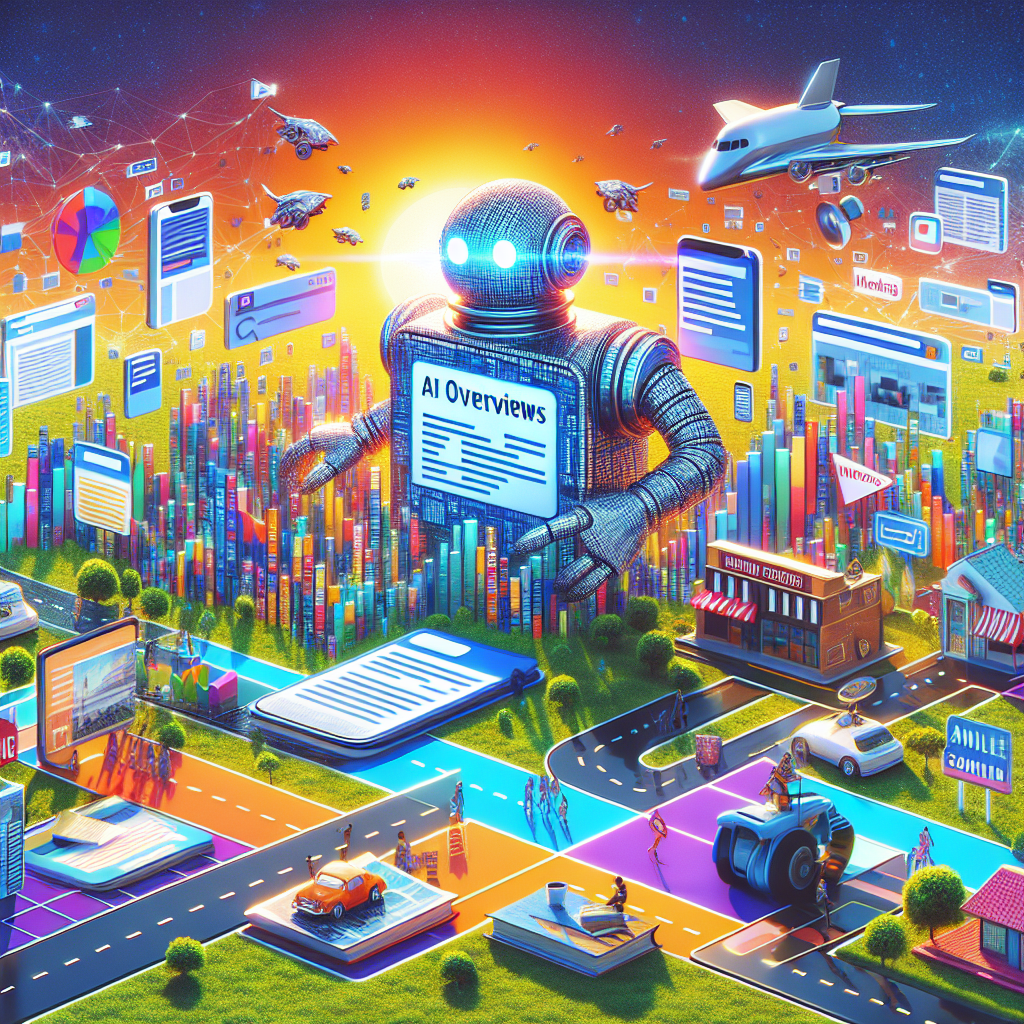The digital landscape is constantly evolving. For years, content creators, publishers, and businesses have relied on search engines as a primary gateway to their audiences. We’ve invested heavily in SEO, crafted compelling articles, and built intricate websites, all with the goal of being discovered. Now, a new feature from Google, AI Overviews, is stirring a significant debate. What was introduced as a helpful tool for quick answers is now raising critical questions about the very survival of the online content ecosystem.
The Rise of AI Overviews: Convenience at What Cost?
Google’s AI Overviews are designed to provide concise, AI-generated summaries directly within search results. Imagine asking a complex question and getting an immediate, distilled answer without needing to click through various links. This promises unparalleled convenience for users. For instance, if you search for “how to fix a leaky faucet,” an AI Overview might present step-by-step instructions instantly.
This feature leverages sophisticated AI models to synthesize information from multiple sources across the web. The intent is to streamline the search process, making information more accessible and immediate. However, this convenience for users might come at a steep price for the content creators whose work fuels these summaries.
The Looming Threat to Content Creators
For many websites, organic search traffic is their lifeblood. It drives ad impressions, subscriptions, product sales, and affiliate revenue. The rise of AI Overviews, however, threatens to disrupt this fundamental model.
Diminished Organic Traffic
When AI Overviews directly answer user queries, the necessity to click through to original source articles diminishes significantly. If a user receives the exact information they need right on the search results page, why would they navigate to another website? This change could lead to a substantial reduction in click-through rates (CTRs) for content publishers.
- Reduced Page Views: Fewer clicks mean fewer visitors reaching a website.
- Lower Ad Revenue: Decreased traffic directly impacts the revenue generated from display advertisements.
- Impact on Affiliate Income: Less traffic means fewer potential customers clicking on affiliate links embedded within content.
The Plight of Niche Websites and Independent Voices
While large news organizations might have diversified traffic sources, smaller, independent blogs and niche websites are particularly vulnerable. These sites often rely almost entirely on organic search for their audience. They are powered by passionate individuals or small teams who pour countless hours into creating specialized, high-quality content.
- Monetization Challenges: With reduced traffic, sustaining these operations becomes incredibly difficult.
- Disincentive to Create: If the financial returns dwindle, the incentive to produce in-depth, valuable content for the web could erode.
- Loss of Diverse Perspectives: A decline in niche sites could lead to a less diverse and more centralized information ecosystem.
A Shifting Digital Landscape
The introduction of AI Overviews signals a significant shift in how information is consumed online. Google is increasingly becoming the destination for answers, rather than merely a conduit to other websites. This changes the fundamental relationship between search engines, content creators, and users.
This shift raises important questions about fairness and compensation. Is it equitable for an AI to summarize and present content without directly sending traffic to the creators who invested time, resources, and expertise? This debate echoes earlier discussions about snippets and featured results, but with a potentially far greater impact due to the comprehensive nature of AI summaries.
Navigating the New Reality: Strategies for Content Creators
Adapting to this evolving landscape is crucial for content creators. While the challenges are significant, opportunities might still exist for those willing to innovate and adjust their strategies.
- Focus on Unique Value and Expertise: Create content that goes beyond simple factual answers. Offer unique perspectives, in-depth analysis, personal experiences, or interactive tools that an AI summary cannot replicate.
- Build Direct Audiences: Emphasize community building through newsletters, social media, podcasts, or direct memberships. Reduce reliance on search engines as the sole source of traffic.
- Diversify Revenue Streams: Explore multiple monetization strategies beyond display ads, such as:
- Direct sales of products or services.
- Premium content subscriptions.
- Sponsorships or brand partnerships.
- Online courses or workshops.
- Embrace Multimedia: Focus on video, audio, and interactive content formats that may be harder for AI to summarize comprehensively in text form.
- Optimize for Engagement, Not Just Clicks: Design content that encourages users to stay longer, interact, and return directly to your site, even if they initially find you via an AI Overview.
The Future of Online Content
The rollout of AI Overviews presents a pivotal moment for the internet. It challenges the traditional economic models that have sustained countless content creators and publishers. While the promise of instant answers is appealing, the potential consequences for the diversity and vibrancy of online content are profound.
As this new era unfolds, it’s incumbent upon content creators to adapt, innovate, and find new ways to connect with their audiences and sustain their valuable contributions to the digital world.
What are your thoughts on Google’s AI Overviews and their impact on online content? How do you think content creators should adapt to this new landscape? Share your insights and join the conversation about the future of the web.



